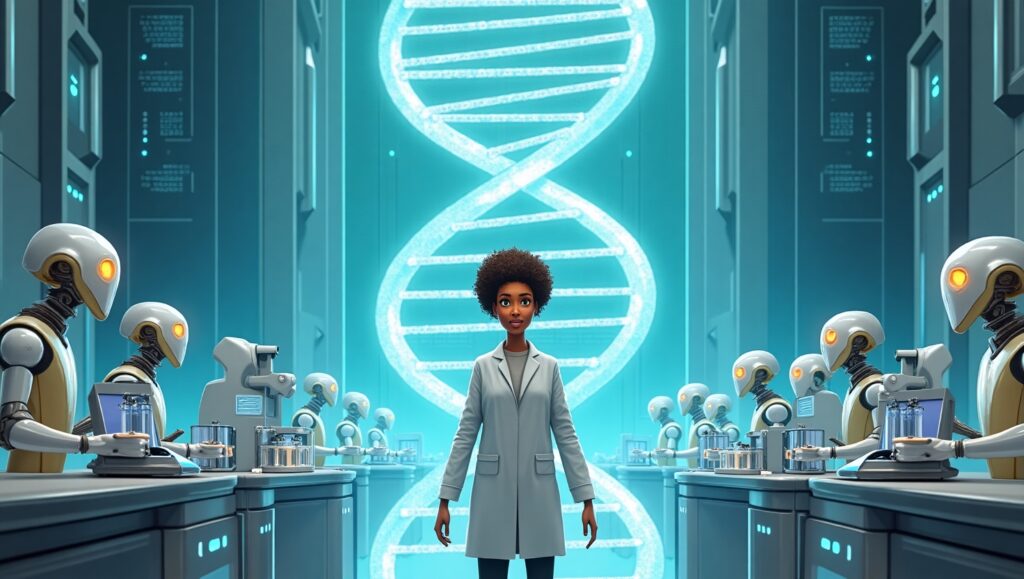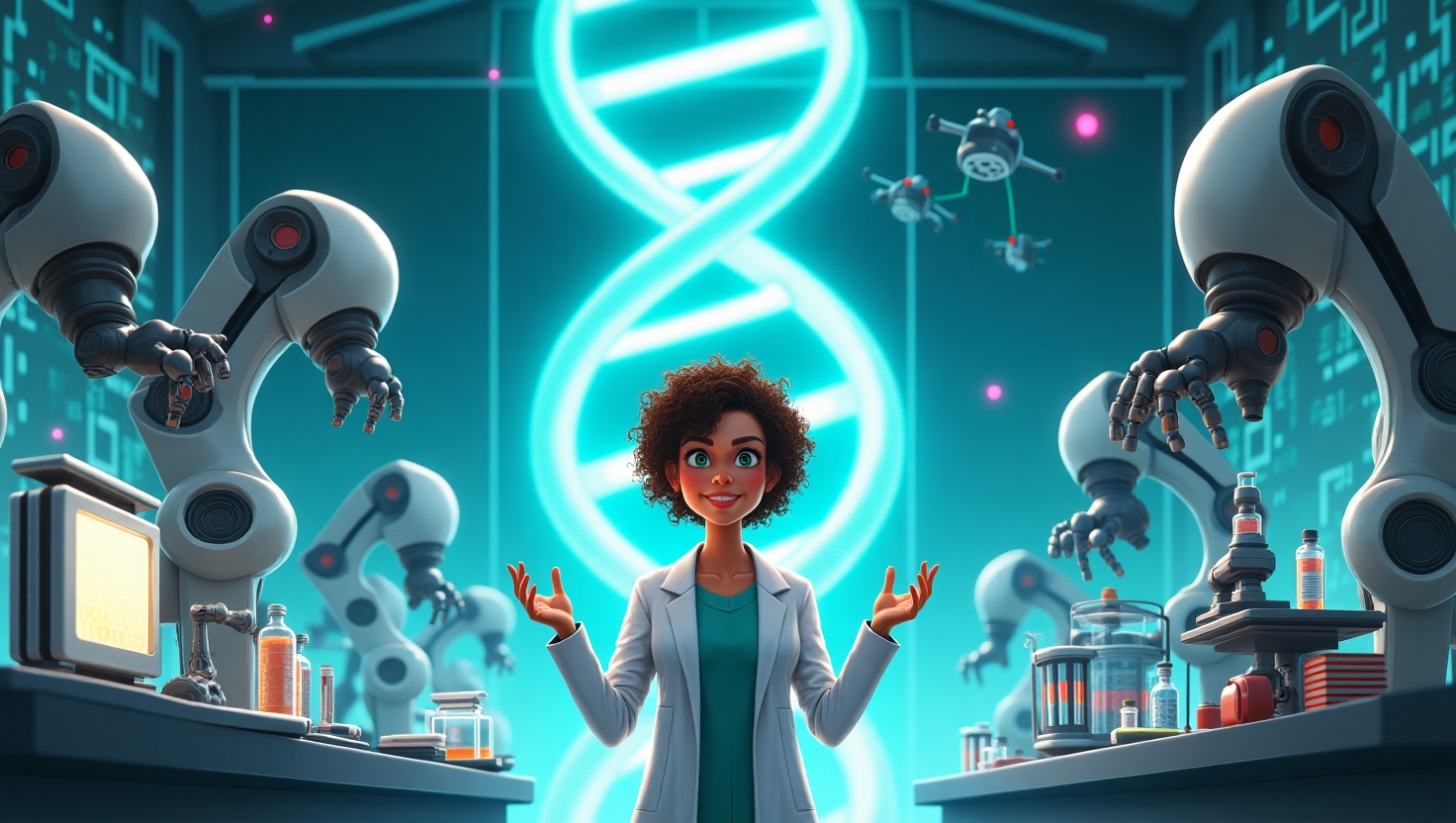A Vision That Could Change Humanity
Imagine a world where cancer, Alzheimer’s, and even rare genetic disorders are no longer threats. Google DeepMind’s CEO, Demis Hassabis, recently shared a jaw-dropping prediction: artificial intelligence could cure all diseases within the next decade. This bold claim, made during a CBS 60 Minutes interview, has sparked excitement worldwide. Adding fuel to the fire, Perplexity AI’s CEO, Aravind Srinivas, called Hassabis a “genius” and urged global support for this vision. Could AI truly transform healthcare forever? Let’s dive into this game-changing possibility.
Why AI Could Be Healthcare’s Ultimate Hero
Hassabis, a Nobel laureate and co-founder of DeepMind, isn’t just dreaming big. His company’s AI model, AlphaFold, already solved a decades-long puzzle by mapping over 200 million protein structures in a single year—a feat that once took scientists years per structure. Now, DeepMind is targeting drug discovery, aiming to slash development time from years to mere weeks. “AI could revolutionize human health,” Hassabis said, hinting at a future with “radical abundance” where scarcity, including disease, becomes history.
But what makes this possible? AI’s ability to analyze massive datasets, predict molecular interactions, and accelerate research is unmatched. For instance, DeepMind’s work with Isomorphic Labs is already pushing for faster drug development. Meanwhile, Srinivas, whose Perplexity AI competes with Google, praised Hassabis on X, saying, “He should be given all resources in the world to make this happen.” This rare show of unity among tech leaders signals the urgency and potential of AI in healthcare.

Real Stories, Real Impact
Picture Sarah, a 45-year-old mother diagnosed with breast cancer. Today, her treatment relies on drugs developed over decades. In Hassabis’ future, AI could design personalized therapies in weeks, tailored to her unique biology. Or consider Raj, a teenager with a rare genetic disorder. AI-driven research could unlock cures that were once deemed impossible. These aren’t just hypotheticals—they’re the human stakes of this AI revolution. By speeding up drug discovery, AI promises hope to millions, making healthcare faster, cheaper, and more accessible.
Challenges on the Horizon
Of course, curing all diseases isn’t a simple task. As some X users pointed out, system-wide diseases like autoimmune disorders are trickier than single-target issues like cancer. Ethical concerns also loom large. Hassabis himself stressed the need for “ethical guardrails” to ensure AI benefits humanity without risks like bias or misuse. For example, who gets access to these AI-driven cures? Will they be affordable globally? These questions demand answers as we race toward this future.
Moreover, the tech isn’t perfect yet. AI models can sometimes produce errors, and integrating them into complex medical systems takes time. Still, the progress is undeniable. DeepMind’s AlphaFold has already transformed biology, and with billions in funding, the next decade could see breakthroughs we can’t yet imagine.
Why This Matters to You
This isn’t just a tech story—it’s a human one. Whether you’re a patient, a caregiver, or simply someone who wants a healthier world, AI’s potential to end diseases touches us all. Hassabis’ vision, backed by Srinivas, shows how collaboration and innovation can rewrite the rules of medicine. As Srinivas noted on X, the past few months alone have seen AI progress faster than the previous two years combined. This momentum suggests we’re on the cusp of a healthcare revolution.
Want to stay informed? Follow Google DeepMind for updates on their groundbreaking work, or check out Perplexity AI to explore AI-powered insights. The future of health is unfolding now, and you can be part of it.
What’s Next for AI and Healthcare?
The road to curing all diseases is ambitious, but the pieces are falling into place. DeepMind’s work on protein structures and drug discovery is just the start. Meanwhile, companies like Perplexity are pushing AI to answer complex questions, helping researchers and doctors stay ahead. As Hassabis put it, “I don’t see why not.” With global support and ethical oversight, the next decade could indeed mark the end of disease as we know it.
So, what do you think? Could AI truly cure all diseases by 2035? Share your thoughts and join the conversation on X to see what others are saying. The future is closer than you think—let’s embrace it together.
